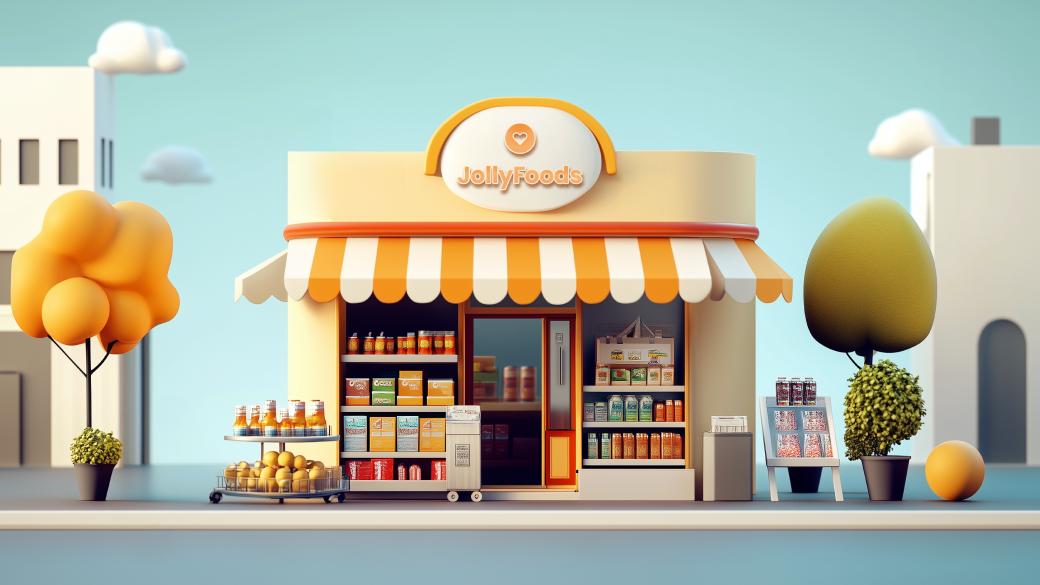==SummarySmall retail businesses, ranging from boutiques and gift shops to online stores and mobile units, play a crucial role in local commerce by offering tailored solutions and unique products. These businesses vary in type, including convenience stores, specialty shops, and innovative formats like pop-up shops. Wholesalers benefit from understanding these diverse models to provide complementary services and scalable solutions, ensuring reliable inventory and meeting market demands. Effective wholesale partnerships are vital for small retailers, offering competitive pricing, organized sourcing, and insights into market trends. By leveraging these opportunities, wholesalers can foster success across various retail segments and markets.Summary==
==TableOfContentsIntroduction to Small Retail Businesses
Popular Types of Small Retail Businesses
Convenience-Oriented Retail Formats
Innovative Retail Concepts
Franchise Opportunities for Small Retailers
Understanding Small Retail Business Models
Key Industry Segments and Categories in Small Retail
Why Wholesale Partnerships Are Essential for Small Retailers
TableOfContents==
Introduction to Small Retail Businesses
Many small retail stores remain the central supportive structures of local commerce, they provide specific solutions and individual product offers. These include physical shops right from street corners, malls and clubs to online shops, these organise the society offering basic as well as non-basic needs including interaction platforms. Small retail businesses are of different types, and it becomes essential for wholesalers to know about these kinds of small retail businesses to provide strong complementary services for business success. Discover the key elements of successful local commerce in B2B Customer Service: What It Is and How To Do It Well, offering insights into creating effective partnerships.
Popular Types of Small Retail Businesses
Boutique Stores
Boutique stores are specialised stores that have a limited stock of accent merchandise for fashion and lifestyle solutions. Such shops may target a specific group of consumers, and this is where the wholesalers with specialised goods should target their affiliations.
Gift Shops
Commonly exist in tourist attractions they mainly sell mementoes and souvenir items. These retailers can be of tremendous benefit to wholesalers who are dealing with seasonal or artisan merchandise.
Clothing Boutiques
Clothing boutiques are defined as distinct small-scale clothing retailing businesses that primarily depend on exclusive selling and selling trends. With sustainability being a buzzword today, whether a company is posting sustainable clothes or luxury brands, the supply chain forms a crucial part of the business and requires reliable wholesale partners.
Specialty Shops
Retail stores are places that are narrowly defined by what they sell; for instance, cheese stores or craft beer points of sale. These retailers include wholesalers that provide customers with high-quality or artisan alternatives.
Simplisales Supports Every Type of Retailer
Find out how Simplisales can streamline inventory management and reduce operational costs for retailers.
Convenience-Oriented Retail Formats
Local Grocery Stores
Grocery stores located within the communities sell everyday items, perishable foods, and other items to the residents. For example, wholesalers dealing in convenience or regional goods get a lot of benefits from associating with those kinds of stores.
Convenience Stores
Convenience stores are establishments meant for a fast sale and a large number of turnovers modern products or products that are in high demand include; · Snacks · Beverages · Goods and services. They have a rather short inventory turnover that requires constant provision from wholesalers.
Mobile Retail Units
Conveyors, for instance, food truck or fashion vans offers products to people at different places at one point in time. These dynamic retailers demand the ability to be mobile and have a scalable wholesale solution to meet their ever-varying inventory demands.
Innovative Retail Concepts
Pop-Up Shops
Pop-up stores are temporary store outlets where business ventures can experiment with various markets, launch new brands, market certain products, or even in support of specific seasons. Wholesalers can thus capitalise on other opportunities by providing short-term supply end products to these new ventures.
Online Small Retail Businesses
With the onset of eCommerce small retailers carry out their businesses fully online and are able to access new markets at lower costs. These virtual storefronts benefit greatly from wholesalers that provide stable, well-ordered online catalogues and efficient supply chains.
Franchise Opportunities for Small Retailers
Franchising helps emerging business people find branded images, structures as well as backing. These are considered to be first and second-generation outlets, ubiquitous examples of which include coffee shops and QSRs. Such operations are franchised and are usually supplied by wholesalers who act as key suppliers of goods.
Understanding Small Retail Business Models
Small retail businesses may be solely owned, co-operatives and franchises; primary and secondary Co-op, franchise, and independent retail. There are two models discussed, each with strengths and weaknesses for the wholesalers wanting to cater to their requirements. Learn about cooperative and franchise models in Exploring Physical Store Examples: Insights for B2B Wholesalers.
Key Industry Segments and Categories in Small Retail
This means that the degree of competitive rivalry is relatively low, and the small retail industry is comprised of several significant product categories which include fashion and apparel, food and beverages, home and furniture as well as technology and electronics. Retailers serving these specified segments can expand their coverage by pinpointing the requirements of each category.
Expand Your Retail Impact
Learn how to meet the unique needs of fashion, food, home goods, and tech retailers.
Why Wholesale Partnerships Are Essential for Small Retailers
Wholesale relationships allow small retail stores to operate effectively by offering competitive prices, an assortment of stocks and organised sourcing. Good wholesalers supply the required products and also offer most small enterprises profound advice on market changes and tendencies.
Conclusion
The list of small retail categories shows the great potential to develop wholesalers’ collaboration with these companies. When it comes to specific formats of the small business retail market, wholesalers must establish partnerships that help all involved experience success in the United States and throughout the international B2B eCommerce market.
==RelatedPosts
__post__exploring-brick-and-mortar-store-examples-showcasing-the-backbone-of-retail
__post__product-information-management-pim-for-retail-a-complete-guide
__post__types-of-retail-stores-retail-stores-examples
RelatedPosts==

Leave a Reply